- Home
- Ella James
Covet : A Standalone Forbidden Romance Page 2
Covet : A Standalone Forbidden Romance Read online
Page 2
I tried to tell her, tried to tell her that I hadn’t meant to push him over. But Mummy shrieked and cried, and when a pale hand thrust out of the murky cauldron of the sea, she screamed again and turned to me. “Stay here, Finley! Do not move!”
The skiff rocked mightily as she jumped out. Water rushed in. I saw a flash of red—my Mummy’s pretty hair—then a dash of yellow as a whitecap stole her halo. And then nothing. Nothing.
Nothing.
One
Declan
April 2018
Smoke seeps from my lips, drifting out over the boat rail like a curl of fog. Tonight, the water’s placid, an inky black with smears of pastel starlight. Out here in the middle of the Atlantic, the sky at night is more glitter than darkness. Hazy swaths of purple, peach, and green sky twinkle with diamond-bright stars, their reflection gleaming on the curve of wave that runs alongside the boat.
I curl my hand around my cigarette and bring it to my mouth again.
I’m standing atop the cargo ship’s flat hull, hidden from most vantage points by the twenty-foot-tall boxy structure just behind me: the navigation post and captain’s quarters. At this hour, both are likely empty. The crew is down below deck, playing poker. Still, I turn the cherry toward my palm.
Better to stay hidden.
That’s been my game since I boarded Miss Aquarius back in Cape Town: wear my cap low, keep my mouth shut, and help out where I’m needed till I reach my destination.
I close my eyes on a long drag and lean against the railing. That’ll be tomorrow. Fuck.
I finish off the smoke and light another one.
It’s fucking cold out here. My T-shirt’s not enough, even with jeans. South of the equator, we’re headed into fall—in early April. Strange stuff. I swallow hard and look down at the deck under my feet. Then I cast my gaze up to the sky and fill my lungs with salty air.
When I feel something in my hand, I look down, finding a line of ash in my palm. I bring the Marlboro to my lips and take the last drag with shaking fingers before pinching the cherry out.
I should go below deck. Play some solitaire in my cabin. Instead I light a third smoke, and, with my free hand, rub my arms. Even after just a few months off, they’re smaller than I’m used to, making me feel like someone else.
Laughter trills into the quiet, voices rising as footfall thuds inside the stairwell to my left. Before I can turn toward the sea, figures spill onto the deck. I whirl around, snuffing my smoke out against the rail. Then I turn the other way, aiming to sneak around the navigation post, but there’s a loud “Hey, man.”
I turn slowly. Half a dozen guys are lined up in some kind of formation, making a semi-circle between the stairwell they just came out of and me.
I nod, meeting the eyes of the one who spoke. Kevin is his name. I think. He’s only an inch or two shorter than me, with blue eyes and close-cropped brown hair. He’s one of the Americans on board.
I step toward the stairwell, but Kevin catches my arm. “Hang on a sec. We wanna talk to you.”
I hear another say, “We barely know you,” at the same time as a third—not an American, judging by his accent—is saying, “been six days.”
I nod. Hold up a hand. “George,” I say, as I step between two of them.
“That’s the thing, though,” he sneers. “We don’t think it is.”
“No?” I look behind me.
They’re all grinning. “Hell no.”
“We been watching.”
“We’ve got an idea about you.”
My stomach pitches as a hand claps my shoulder.
“You can tell us.”
“We know you’re not George.”
One dude jerks a thumb at the captain. “You know Bo, don’t you? He’s the cap’n. No good lying to the captain.”
Bo steps closer. He’s older than most of the crew members, but still young. If I had to guess, I’d say no older than forty-five. He’s wearing khaki-looking shorts and a stained Costa tee. “I know what your papers say. But take your hat off, mate, and help me win a wager.”
I shake my head, stepping backward toward the stairwell. “Night, guys.”
“I told you it’s not him.” Someone’s in the stairwell, lighting a cigar. He grins around it.
At that same time, I lose my hat. I spin around and snatch it back, glaring at the fucker who took it. His eyes widen at the clear view of my face.
Gasps chorus around us.
“Holy shit.”
“I fuckin’ told you, Bo!”
The one in the stairwell spreads his arms, chuckling as he blocks me.
“That’s some damn good camo, brother. I need something, though, before you get to pass.”
He holds a slip of paper out, and the men gather around.
“Homer Carnegie on our boat, we’re gonna need some autographs…”
I fake a grin and take the paper. Six thousand miles from Boston, and I’m fucking outed.
Finley
I clutch the bottle to my chest and cross myself. Then I shut my eyes, bring my arm back, and throw it hard over the cliff’s edge. With my eyes shut, I picture its trajectory as it plummets toward the ocean. I inhale, feeling dizzy as birds caw above my head, and far below me, waves break on the rocks.
Vloeiende Trane, these cliffs are called; it means “cascading tears” in Afrikaans. The highest peak is two hundred meters above the ocean’s ragged waves. Midway between the cliff-top and the sea, water pours out of the rock in three long streams that look like tears from further out.
Standing atop Vloeiende Trane, the white caps look no bigger than a fingernail, the ocean’s swirling cauldron just a gentle dappling of greens and blues.
Deceptive.
I wipe my eyes and fold my arms over my chest. I won’t throw another bottle, I promise myself as I step toward the cliffs’ edge. I search the waves for a flash of glass, for something that will give me satisfaction, but of course, I see nothing.
That’s the point, though, isn’t it? Throwing letter-stuffed bottles into the void. It’s like a prayer. That’s its magic. Still, it hurts to know no one will ever read my words. I wipe my face again and whisper, “Give me courage.”
I lick my lips and stand with my eyes closed, thinking of Mum. It’s something that I almost never do, because I can’t bear it. Today, though, I can’t seem to help myself.
When my eyes feel puffy and hot, I walk back across the stony plane that forms this small plateau and look down at the field below, its tall grass pressed flat by the wind. At the edge of the field, a cottage. Beyond that, the village valley—an expanse of lush, green grass framed by the cliffs that form the border of the island.
Three gravel roads stripe the valley where the village lies. Scattered along them are sixty-seven cottages, topped by roofs of thatch or brightly colored tin. My gaze runs over the island’s few landmarks: the yellow roof of the café, the bare dirt of the baseball field, the green roof of the clinic near the village’s east side.
The church’s small, white steeple looks thin as a toothpick from here. I squint, but I can barely make out the blue tin roof of my dear friend Anna’s house. I lift my hand to my eyes and stretch my thumb out sideways, and the village disappears—the whole world, gone.
Climbing down the plateau’s steep side into the field behind Gammy’s house takes half an hour. I move carefully without a harness, slow and steady in the warm glare of the sun, until my soles press into soft grass.
The wind-flattened field—Gammy’s backyard—is big and round, hemmed in on one side by the dirt path that leads from the lower slopes of the volcano down to the village, and on the other by the rocky cliffs that overlook the ocean.
Before she passed, we built a table from wood scraps and set it near the field’s center. I climb onto it and peer up at the sky. Early autumn now, its blue is almost violent. Today, for once, there are no clouds except some wispy tendrils behind me, wreathing the volcano’s peak.
I watch the kingb
irds fly, swooping off the cliffs and out of sight, and my heart aches for Gammy. She would have righted my course. Gammy would have told me to say “no” when I was asked. Probably “hell no,” I admit. My stomach knots.
I shift my gaze to the cottage, to the stone kiln beside it and the blue sky spread above it, and the cliffs that rise out of the grass beside it. I inhale the salty air and tell myself just stop. Now is not the time for despair. Gammy would tell me to keep focused. There are options yet.
I swipe the hair out of my face and carefully re-braid it as my shoulders tingle from the sun’s heat. When my damp shirt has dried in the breeze, I get up and walk to the kiln.
There’s a small door on the front and two shelves in its slightly rounded belly, where I set my pieces. I haven’t done enough of this lately. I’m not even sure I retrieved my last load. I open the door and find indeed I didn’t. Two hunter green bowls and a thin, black vase with golden flecks wait inside. I gather them carefully into my arms and follow the stone path to the cottage’s front door.
When I first moved in with Gammy, I called this the Hobbit cottage. She didn’t know, of course—I wasn’t speaking—but it reminded me of a Hobbit’s house: the south side built into a hill; one small, round window punched into the grass; the rounded, dark wood door and beige stone facade in front; a thatched roof tilting low; chimes affixed to several spots; and a flower garden growing wild about the stoop.
The door opens with the old, familiar creak. I step into the tidy living area. I run my hand over the well-worn armchair and try to look at it through his eyes. The green and blue rug—woven by my great-grandmother—that’s spread across the cement floor. The slouching navy love seat, with its tiny, beige polka dots. The boxy TV on a tiny cedar table in one corner. The wild banana plant dominating the other. Grandma’s needlework adorns one wall. A fern hangs in a basket near the TV. The wall to my right, which divides the living room and kitchen, sports a horizontal bookcase.
It smells like rose and lemon here, and the lovely musk of aging paperbacks. I rip my eyes from the bookshelf and walk into the kitchen. Small and standard, I suppose, with a pale blue laminate countertop, a small, round table; some wall-mounted shelves; and a wooden cabinet/pantry in one corner. Wallpaper in a faded, fruit basket pattern adorns the walls.
I scrub my arms and hands with the same lemon pumice soap I use to get the clay grit off after I finish a new piece, and then unpack the bags of food I brought before my hike. I arrange apples, pears, and peaches in a small, wooden bowl and leave a shrink-wrapped loaf of friendship bread atop a matching wooden platter. I check the refrigerator again, as if the eggs, butter, chicken, duck, and various sauces I left there a few hours ago might have walked away. They didn’t.
I line jam along the wall beside the sink, double-check the seal on three bags of homemade potato chips, and check the pantry for the pasta, canned goods, Pop-Tarts, and bags of popcorn I already know are there. I re-fold the towel on the oven—Home Sweet Home it says, in faded blue script—and drift back through the living room, picturing him walking down the short hall to the first door on the right, which I’ll leave slightly ajar.
It was my mum’s room, but when my parents passed, it became mine. It has one window, covered with a lace curtain and facing the ocean. When I was young, it held a full-sized bed, a bookcase, a dresser, and a rocking chair. Now I’ve moved the bookcase into Gammy’s old room, where I store my pottery and package it for shipment on occasions when I sell a piece.
I step in front of the vertical, wall-mounted mirror by the dresser and peer at myself. Still no wrinkles, no more freckles than I’ve ever had. I don’t look older than twenty despite my twenty-seven years. I pull my hair down from its tie and spread the long, rust-colored locks around my face. I blink my yellow-brown eyes, purse my lips, and study my cheekbones…the smooth skin of my throat and collarbones.
Will I look like an islander to him? Or just a woman?
I laugh. Does it matter? I suppose that shall depend on what I choose to do. The mere notion of that possibility brings about a need for smelling salts, so I move on from the mirror and my thoughts, stepping into the en suite washroom to pull open the curtains.
I look out at the vast, gray sea and smooth blue sky, and I try to imagine any other life for myself than the one I have. Could I have been happy here? If Mum had lived. The answer floats up from my bones, a truth too potent to quash.
The sea breeze slaps against the windowpanes and whistles through the thatched roof as I tidy up. Will our cottage be comfortable to him, or will this place appear pitifully lacking? The pristine American homes I’ve seen were all in magazines or movies, so I’m not sure they were the regular sort. Then again, neither is he. As my mum’s stories alluded, he’s more king than commoner.
I set my favorite eucalyptus bath crystals on the table by the claw-footed tub and arrange lavender fizzies in a wee bowl. These things were mine, once—but they haven’t been for a while. Anyway, I don’t mind sharing.
I stroll back into the bedroom, leaving a pack of Doublemint on the night table. I step over to the dresser and reach for the framed photo of Mum and me, twin flower halos on our twin red heads…but then I draw my hand away. I can’t say precisely why, but it seems important that I leave it in its place, that I let her stay here—perhaps especially now.
Another spin through the house with the duster, and I call it ready. I linger in the living room, my chest aching and my head too light. On a whim, I turn back to the bedroom. I fetch a small bottle of rose water from the top drawer and spray the living area, tucking it into my pocket as I go.
Two
Declan
I press the power button on my phone and squint at the bright light.
2:49 AM.
I stuff the phone under my pillow, roll onto my side. A bolt of pain sears my right shoulder, sending me onto my back again. Dammit. I’ve gotta quit forgetting that. Left side it is. Except the left side has me facing the door to my matchbox-sized stateroom. There’s a little window on it.
There’s no paps here, asshat.
I made headlines in November, but nobody besides my team at Red Sox headquarters and a bunch of folks in white coats know the worst of it. I’ve been out of the press since the TMZ video shit, in no small part because the Sox have taken care of me. I try to find some comfort in that. I think about my agent, Aarons; my publicist, Sherie. Even the Sox board was more than generous with me, more than forgiving.
Instead of making me feel better, remembering everyone’s kindness makes my throat knot up. I run a hand back through my hair and tug until my eyes stop stinging. Nothing’s fucking wrong. It’s always this way, I remind myself. I fold my knees up toward my chest and cover my eyes. I just need to sleep. Even an hour or two would help. A nap before breakfast…
After my identity was revealed, the ship’s cook demanded to know what I wanted for my last breakfast on board, and he’s now planning to cook omelets starting at six. He wants me there while he cooks—“to make sure I get it just the way you like it.” The chief navigator and the captain plan to join us in the kitchen. After that, more autographs. And pictures with the crew.
Fuck me.
I don’t know what to tell them. “No” makes me sound like a dick, and “yes” means I’ll end up trending on Twitter.
I sit up and rub the shoulder. Useless. Without my usual concoction keeping me numb, the fucker hurts every time I breathe. My Sox trainers pushed for surgery before this trip, but my med team pushed back. Of course they did.
I lie back down and shut my eyes and focus on my breathing. In and out…and in and out. Behind my eyelids, I see sunlight stretched in gold webs on the sand and on the underside of waves.
My phone’s alarm wakes me at 6:05 after one snooze. I throw some clothes on, climb the stairs on legs that shake, and step onto the deck, stopping as a soft breeze feathers my hair back. Fog settled sometime overnight, blanketing the ocean in a haze that’s tinted sepia by the rising sun.
It’s so thick I can barely see beyond the deck’s rail.
I know I should haul ass to the dining room, but we’re close to the island now. I can’t resist climbing up onto the deck atop the nav post. The damp stairs squeak under my shoes as I hasten my steps. The stair rail is cool under my palm. I step onto the upper deck, feeling my pulse quicken at the thought of being here again. At that moment, a breeze pushes the fog aside, revealing a sight that I haven’t seen since I was six: Tristan da Cunha—a massive chunk of dark brown rock that rises to a cloud-swathed peak.
Of all the islands in the world, this one is the most remote—the most isolated patch of land where humans live. These thirty-eight square miles of land are 1,700 miles from South Africa and 2,000 miles from South America. With no airport and no safe harbor for large ships, no GPS or cell phone towers, people here live cut off from the world. Mail comes every two to three months, the birth of a baby is a rare occasion, and if someone has a medical emergency, it’s flag down one of the fishing vessels or cargo ships that travel back and forth from Cape Town to Antarctica and back, and hope it’s headed back.
My throat tightens as I squint at the island, searching the grassy valley at the foot of the volcano for cottages that I don’t see from here. Somewhere, maybe on the other side, there’s a little village. If the guidebooks are to be believed, there are just a dozen or so shy of three hundred people—fishermen and farmers, mostly descended from a handful of British.
I remember them packed in their church, their heads all bowed in prayer, some cheeks wet with tears. I can see the women clutching rosaries, the men pulling on jackets and stepping into boats. I remember the lights at night as boats arrived and departed. Each time they came back empty handed, more tears.
Despite the circumstances, Dad and I were welcomed right into the fold. I remember helping an old lady knead the dough for bread while my father went out in a boat and helped search. I remember all the misty rain. I shut my eyes, seeing Dad’s face when he stepped back onto the dock for the last time. His eyes were closed, but hers were open. That’s what I remember most. This little girl wrapped up in blankets, with a dirty, sunken face and ropes of tangled red hair. And weird eyes.

 Murder
Murder Chosen
Chosen Selling Scarlett
Selling Scarlett Hansel, Part Four
Hansel, Part Four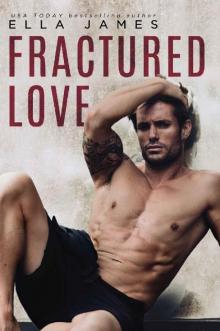 Fractured Love
Fractured Love Exalted
Exalted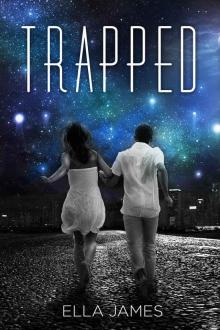 Trapped
Trapped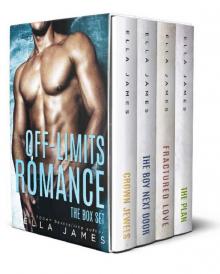 Off-Limits Box Set
Off-Limits Box Set Beast, Part Three
Beast, Part Three Crown Jewels
Crown Jewels Red & Wolfe, Part II: An Erotic Fairy Tale
Red & Wolfe, Part II: An Erotic Fairy Tale Beast, Part One
Beast, Part One The Boy Next Door
The Boy Next Door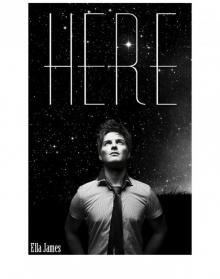 Here
Here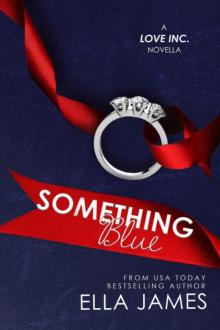 Something Blue
Something Blue Stolen
Stolen Sloth
Sloth Sexy Beast
Sexy Beast The Plan: A Standalone Off-Limits Romance
The Plan: A Standalone Off-Limits Romance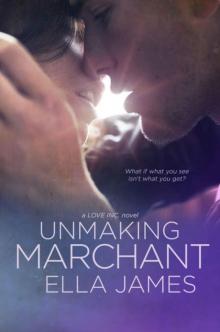 Unmaking Marchant
Unmaking Marchant Red & Wolfe, Part III: An Erotic Fairy Tale
Red & Wolfe, Part III: An Erotic Fairy Tale Hansel, Part Two
Hansel, Part Two Beast, Part Four
Beast, Part Four Red & Wolfe, Part I: An Erotic Fairy Tale
Red & Wolfe, Part I: An Erotic Fairy Tale Hansel, Part One
Hansel, Part One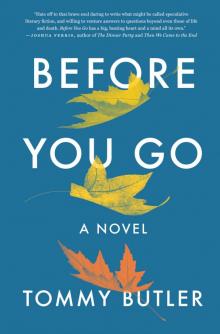 Before You Go
Before You Go Red & Wolfe, Part Four
Red & Wolfe, Part Four Vegas Royals: A Love Inc. Prequel
Vegas Royals: A Love Inc. Prequel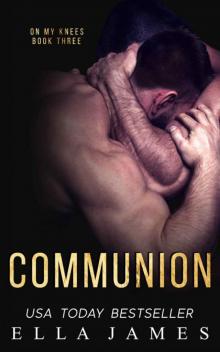 Communion (On My Knees Series Book 3)
Communion (On My Knees Series Book 3)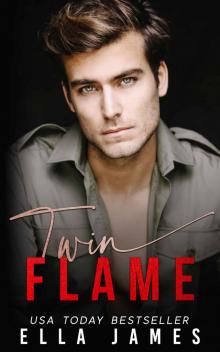 Twin Flame: A Dark Heart Prequel (Dark Heart Duet)
Twin Flame: A Dark Heart Prequel (Dark Heart Duet)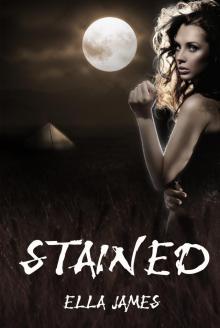 Stained
Stained Sloth: A Standalone Forbidden Romance
Sloth: A Standalone Forbidden Romance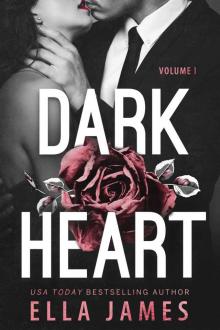 Dark Heart Volume 1: A Star-Crossed Mafia Romance (Dark Heart Duet)
Dark Heart Volume 1: A Star-Crossed Mafia Romance (Dark Heart Duet)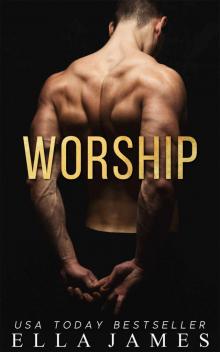 Worship (On My Knees Duet Book 1)
Worship (On My Knees Duet Book 1) Hate You Not: An Enemies to Lovers Romance
Hate You Not: An Enemies to Lovers Romance Taming Cross
Taming Cross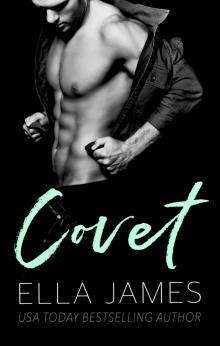 Covet : A Standalone Forbidden Romance
Covet : A Standalone Forbidden Romance Adore (On My Knees Duet Book 2)
Adore (On My Knees Duet Book 2)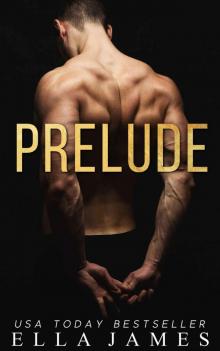 Prelude (On My Knees Duet)
Prelude (On My Knees Duet) My Heart for Yours: A Standalone Forbidden Romance
My Heart for Yours: A Standalone Forbidden Romance Twisted Fate: A Forbidden Romance
Twisted Fate: A Forbidden Romance